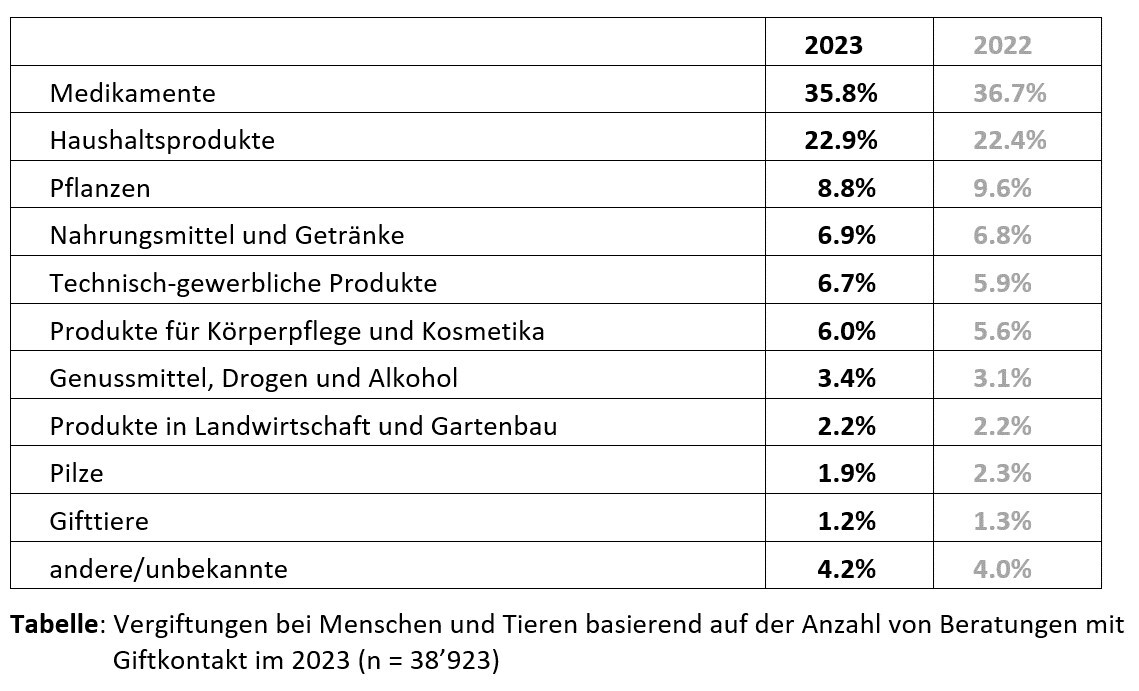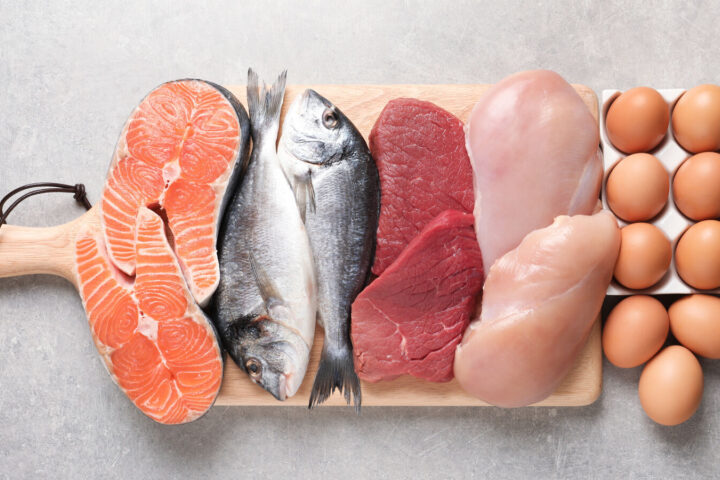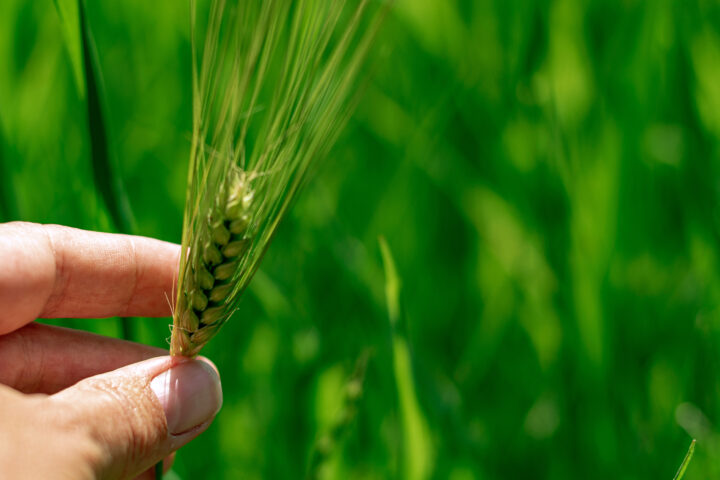
On the trail of POISONs
New 2023 data from Tox Info Suisse shows: Medicines and household products are primarily responsible for poisonings in Switzerland. Tox Info provided over 40,000 telephone poison counselling sessions last year. The statistics contrast with the media coverage. When the media talk about "poison", the focus is usually on pesticides. In the consultation statistics, however, products from agriculture and horticulture figure towards the bottom of the table with 2.2 per cent of consultations.
Friday, January 26, 2024
"With 41,261 consultations, poison counselling was used 1.7% more frequently than in the previous year. As is the case every year, a good 40% of enquiries related to children of pre-school age, which typically involve accidents. For adolescents (around 5% of all calls), on the other hand, the focus is on intentional poisoning, especially suicide attempts and, to a lesser extent, substance abuse," writes Tox Info Suisse in a press release. Radio SRF has also reported on this. (4:29)

The poisoning counselling statistics are also consistent with statements by experts. The German veterinary surgeon and microbiologist Andreas Hensel, for example, showed in a remarkable interview with the Berlin Tagesspiegel how misguided people's perception of the risks associated with pesticides is. Hensel has been the first president of the Federal Institute for Risk Assessment in Berlin, which analyses the safety of chemicals, since 2003. A particular focus is on consumer protection. Hensel recently coined the phrase in the FAZ: "Most people don't die from things they are worried about."
The statistics from Tox Info Suisse contrast with many media reports on the subject of crop protection, where there are constant warnings about poison in food. Hensel also told the FAZ: "In Germany, the fear of so-called chemicals in food is particularly high. Yet our food is safer than ever before. In our everyday lives, we constantly come into contact with potentially dangerous situations or substances. Despite this, there is not necessarily a risk to our health. There is no evidence in Germany that anyone has been poisoned by food containing crop protection residues. This is shown by the evaluations of the German poison information centres. Nevertheless, the scaremongering narrative of toxic crop protection residues has been used regularly for decades."
Good to know:
Chemophobia refers to a panicky fear of chemicals. In contrast, the natural world is seen as the source of all good things. From a scientific point of view, this simplified view is nonsense. Synthetic is not synonymous with toxic, as laypeople often think. The dose is decisive for the toxicity of both natural and synthetic substances.
Kindly note:
We, a non-native editorial team value clear and faultless communication. At times we have to prioritize speed over perfection, utilizing tools, that are still learning.
We are deepL sorry for any observed stylistic or spelling errors.
Sources
Related articles

Why Strict GMO Regulation Stifles Innovation
New breeding techniques such as CRISPR-Cas are considered key to developing resilient crops, stable yields and reducing the need for plant protection products. ETH professor Bruno Studer warns that overregulating these technologies strengthens precisely those large agricultural corporations that critics seek to curb, while excluding smaller breeders and start-ups from the market.

A Superfood with Benefits and Challenges
Sweet lupin is Biovision’s “Superfood of the Year 2026.” It delivers high protein content, improves soils and supports biodiversity. Yet a closer look at agricultural practice shows that without breeding, crop protection and innovation, even this superfood remains a challenging crop.

Sales bans due to PFAS: Should we be worried?
After spectacular sales bans on fish and meat due to PFAS contamination, consumers are asking themselves: How dangerous are these substances really – and what can still be placed in the shopping basket without concern?

How German Experts View New Breeding Techniques
In hardly any other country is the idyllic image of organic farming cultivated in the public sphere as carefully as in Germany. Naturalness and rural authenticity are powerful mental refuges for many Germans. Against this backdrop, it is hardly surprising that resistance to new breeding techniques is strong – and that ignorance about the realities of organic farming sometimes appears almost deliberate.

